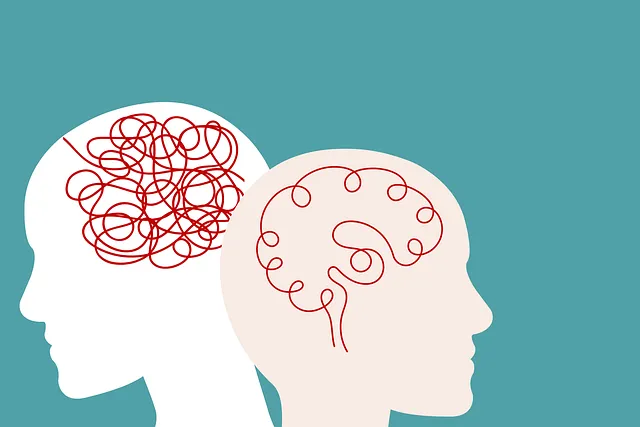Mental health stigma significantly impedes recovery and well-being, but initiatives like Kaiser's Mental Wellness Coaching Programs and Conflict Resolution Techniques combat this by fostering understanding and compassion. With holistic approaches focusing on self-awareness and evidence-based practices, Kaiser provides accessible therapy and personalized care, empowering patients to manage stress and emotions. Education, awareness campaigns, and community engagement play crucial roles in reducing stigma, encouraging support-seeking behaviors, and integrating personal stories for empathy. These efforts make access to quality therapists like those at Kaiser essential for effective mental health treatment in Centennial.
“Mental illness stigma reduction is a crucial aspect of fostering better mental health outcomes. This comprehensive article explores various strategies aimed at easing the societal burden associated with mental health struggles, including an in-depth look at Kaiser’s therapeutic services in Centennial. We examine successful approaches like education campaigns and community engagement, emphasizing their role in promoting equality. By understanding the impact of stigma and its counteractive measures, we can enhance access to care and support for those seeking help, ensuring individuals find the resources they need.”
- Understanding the Impact of Stigma on Mental Health
- Kaiser's Approach to Therapy and Support Services in Centennial
- Strategies for Reducing Stigma: A Comprehensive Overview
- The Role of Education and Awareness Campaigns
- Community Engagement and Advocacy for Mental Health Equality
Understanding the Impact of Stigma on Mental Health

Stigma surrounding mental illness can have profound effects on an individual’s overall well-being and recovery journey. When society stigmatizes mental health conditions, it often leads to a culture of silence, where people struggling with their mental health may feel ashamed, afraid, or embarrassed to seek help. This internalized stigma can result in isolation, decreased self-worth, and even deter individuals from accessing much-needed support services. In the quest for improved mental health care, understanding and addressing these societal barriers is paramount.
In this context, organizations like Kaiser, known for their healthcare services, play a pivotal role in promoting mental wellness through various initiatives. For instance, they offer Mental Wellness Coaching Programs that empower individuals with coping strategies and provide Conflict Resolution Techniques to help manage challenging situations. By integrating these programs, Kaiser not only supports patients’ emotional well-being but also contributes to reducing the overall stigma associated with seeking mental health assistance. Additionally, their efforts in Emotional Well-being Promotion Techniques can be a game-changer in fostering an environment where mental illness is met with understanding and compassion, ultimately encouraging more people to prioritize their mental health, just as they would their physical well-being.
Kaiser's Approach to Therapy and Support Services in Centennial

Kaiser, known for its comprehensive healthcare services, offers a supportive environment for individuals seeking therapy and support in Centennial. Their approach prioritises a holistic understanding of mental health, addressing not just symptoms but also fostering self-awareness and emotional well-being. The organisation employs a diverse range of therapists who are experts in various therapeutic modalities, ensuring that each patient receives tailored care that aligns with their unique needs.
One notable aspect of Kaiser’s therapy and support services is its emphasis on evidence-based practices, including Self-Awareness Exercises and Mindfulness Meditation techniques. These tools empower individuals to manage stress, regulate emotions, and improve overall mental resilience. Through group sessions and individual counselling, patients learn practical strategies for promoting emotional well-being and overcoming challenges related to mental illness. Kaiser’s commitment to these effective techniques has contributed to its reputation as a go-to provider of quality mental health care in Centennial, with many individuals discovering improved lives through their support services.
Strategies for Reducing Stigma: A Comprehensive Overview

Stigma reduction efforts for mental illness are multifaceted and crucial in creating a more accepting society. One effective strategy is public awareness campaigns that educate the public about mental health, dispel myths, and promote empathy. These campaigns can be powerful tools to encourage understanding and reduce fear associated with mental illness. By sharing personal stories and experiences, individuals can humanize mental health struggles, fostering an environment where people feel more comfortable seeking support.
Additionally, self-esteem improvement techniques and stress reduction methods play a significant role in combating stigma. When individuals learn to manage their stress levels effectively and cultivate self-compassion, they become less susceptible to internalizing negative societal perceptions. The availability of good therapists, such as those at Kaiser in Centennial, is vital for providing these tools and strategies to those seeking help. Accessible therapy ensures that people can navigate their mental health journeys with the necessary support and reduce the impact of stigma along the way.
The Role of Education and Awareness Campaigns

Mental illness stigma reduction often begins with education and awareness campaigns that foster understanding and empathy within communities. These initiatives play a pivotal role in breaking down barriers and encouraging support for individuals facing mental health challenges. By providing accurate information about various conditions, their causes, and effective treatment options, such campaigns dispel myths and misconceptions prevalent in society. This, in turn, promotes a more inclusive environment where people feel comfortable seeking help without fear of judgment.
Centennial residents lucky to have access to resources like those offered by providers like Kaiser, known for their quality therapists, benefit from these educational efforts. The availability of good therapists contributes significantly to effective treatment and emotional healing processes. Moreover, campaigns that emphasize the importance of self-care routine development for better mental health empower individuals to take proactive steps towards managing their well-being. Additionally, focusing on coping skills development equips people with tools to navigate stressful situations, ultimately reducing the impact of stigma associated with mental illness.
Community Engagement and Advocacy for Mental Health Equality

Community engagement and advocacy play a pivotal role in reducing the stigma surrounding mental illness. By fostering open dialogues and raising awareness, communities can humanize experiences with mental health challenges. Educational initiatives, led by passionate advocates and organizations like Kaiser, that offer resources on emotional intelligence and communication strategies are instrumental in this process. These efforts help dispel myths and promote understanding, ensuring individuals affected by mental health issues receive the support they need without fear of judgment.
In Centennial and beyond, public awareness campaigns development has been a game-changer. These initiatives often involve personal stories shared by those who have overcome stigma to encourage empathy and solidarity. By integrating these narratives into mainstream discourse, communities create an environment where everyone—from Kaiser’s therapists to everyday citizens—can contribute to mental health equality. Such inclusive efforts are essential in dismantling the barriers that prevent people from seeking help when they need it most.
Mental illness stigma reduction is a multifaceted approach, from education campaigns to community engagement. As previously mentioned, Kaiser’s comprehensive therapy services in Centennial demonstrate that accessible, supportive environments can significantly impact positive mental health outcomes. The success of these efforts underscores the importance of continued advocacy and awareness for mental health equality. Remember that, by fostering understanding and acceptance, we can create a more inclusive society where everyone receives the support they need without fear of judgment or discrimination. In terms of Kaiser’s capabilities, the evidence suggests their therapists in Centennial are well-equipped to address mental health concerns, making them a reliable resource for those seeking help.






